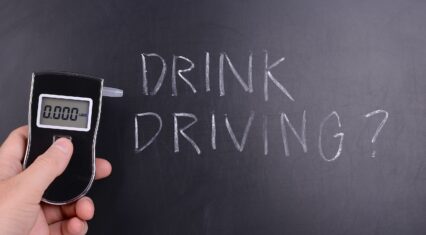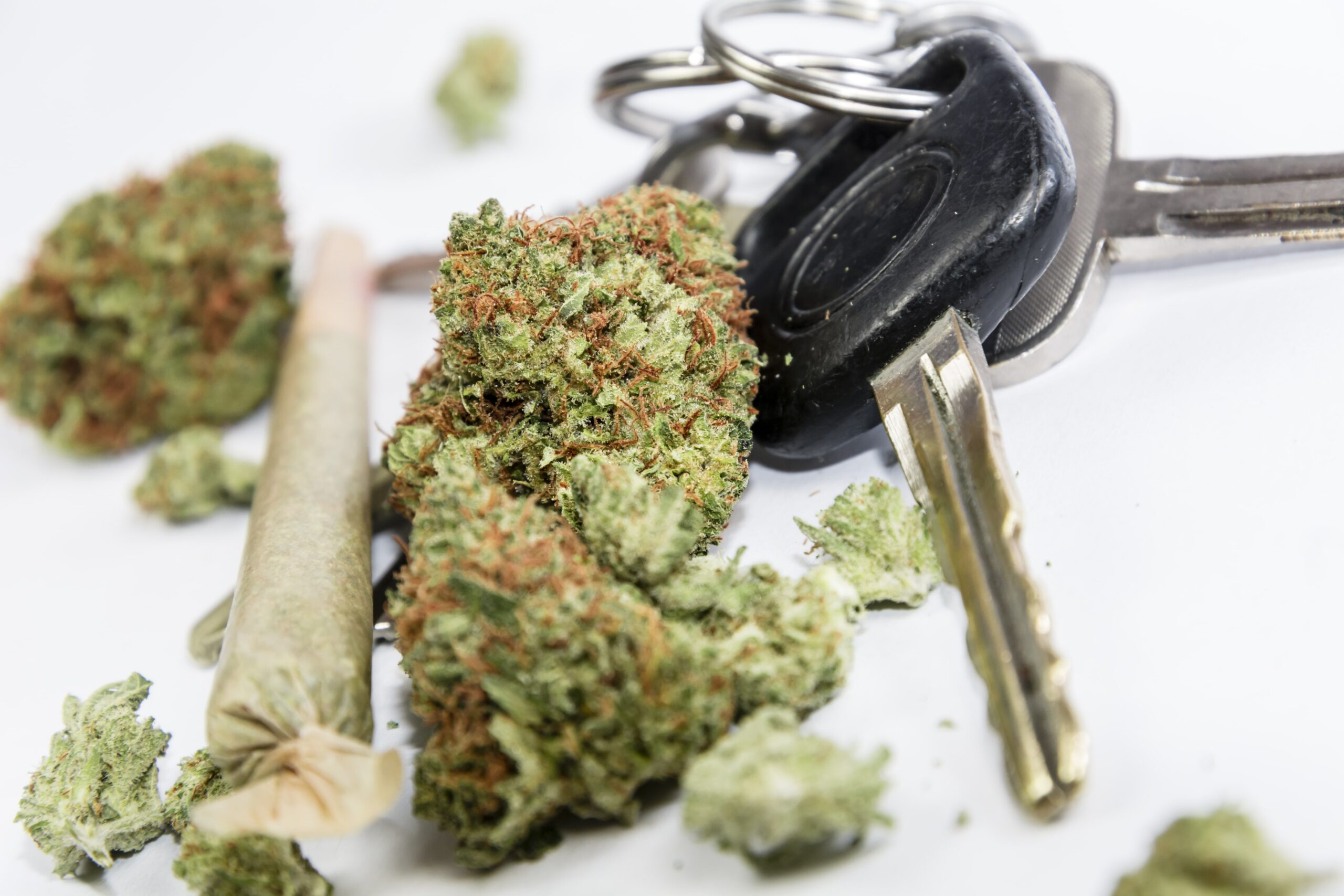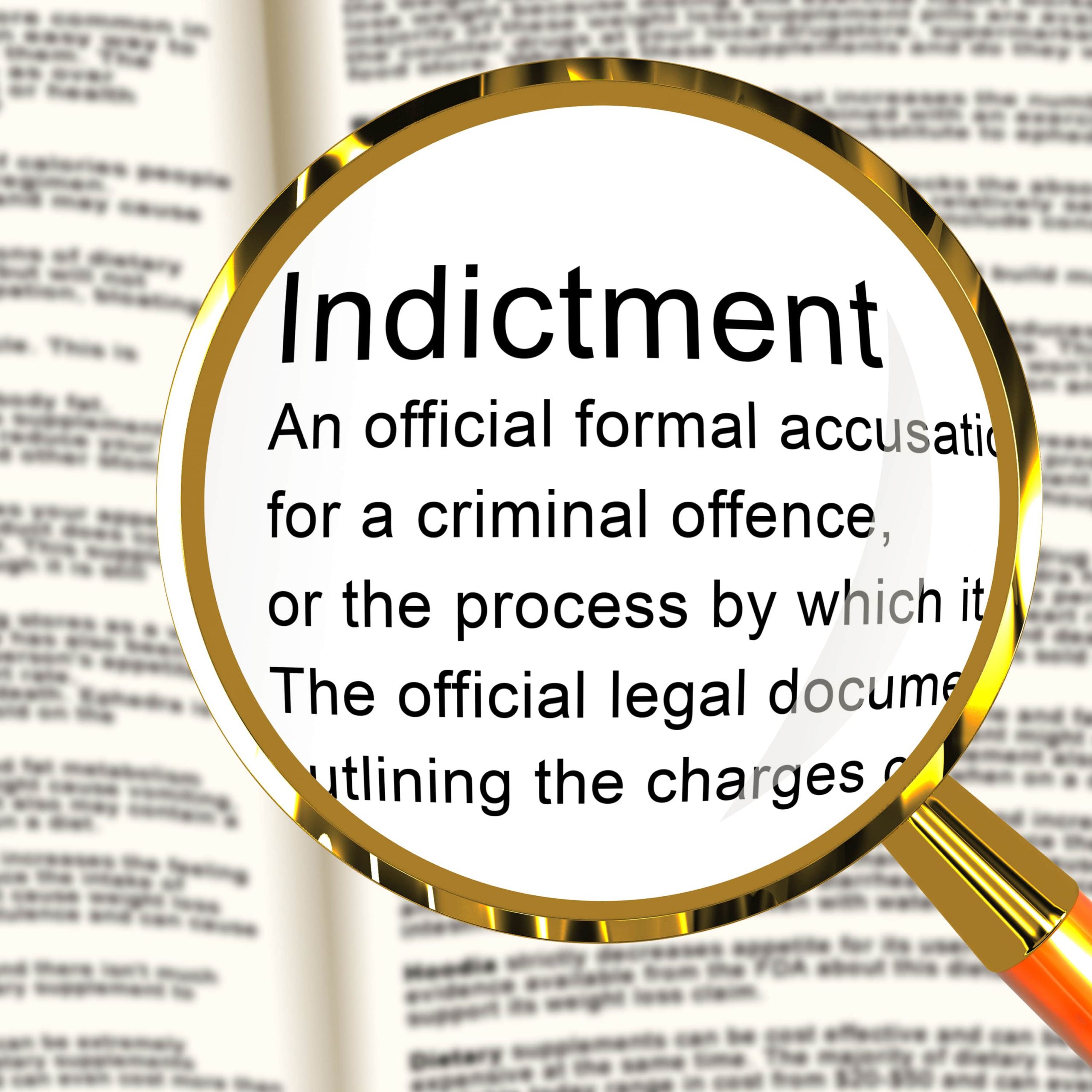Section 111 Road Transport Act 2013 (NSW)
Facing a drug driving charge can prevent you from driving, travelling and getting or maintaining a job. Our drug driving lawyers are seniors, with over 20 years experience in achieving section 10 non convictions for countless of their clients, allowing them to continue driving and remain criminal record free.
What is Driving with illicit Drugs in your Oral Fluid, Blood or Urine (Drug Driving)?
In NSW, it is a crime to drive a motor vehicle while you have a “prescribed illicit drug” in your oral fluid, blood or urine. It can result in a criminal record and disqualification of your driver licence.
It is also a crime to attempt to put a motor vehicle in motion while seated in the driving seat while you have a prescribed illicit drug in your oral fluid, blood or urine.
Can I get a Section 10 Non-Conviction Penalty?
You will avoid a disqualification and criminal record even after pleading guilty to a drug driving offence if the Magistrate or Judge is convinced to impose a section 10 dismissal or conditional release order without conviction on you as a sentencing penalty.
What are the Penalties?
Driving with the presence of prescribed illicit drug(s) in your oral fluid, blood or urine carries heavy penalties.
This can result in a criminal record, fine, demerit points and disqualification of your driver licence.
You will walk away without any of these penalties if the Court is convinced to impose a Conditional Release Order without conviction or section 10 dismissal as a sentence. This will mean you walk away without a criminal record and without a disqualification of your licence.
If this is your ‘first-offence’, the maximum penalty is $2,200 fine.
If this is your ‘second or subsequent offence’, the maximum penalty is $3,300 fine.
Licence Disqualification Periods if Convicted
| Compulsory Disqualification Period |
|
|---|---|
| If ‘first offence’ for driving with illicit drugs | Minimum: 3 months Maximum: 6 months |
| If ‘second or subsequent offence’ for driving with illicit drugs | Minimum: 6 months Maximum: 12 months |
The Judge or Magistrate in court will end up imposing any one of the following types of penalties as a sentence for this offence:
- Section 10 Dismissal
- Conditional Release Order with or without conviction
- Fine
- Community Correction Order
- Intensive Correction Order
- Full-Time Imprisonment
What are the Defences?
You will be found not guilty for driving with a prescribed illicit drug in your oral fluid, blood or urine if:
- Consumption for medicinal purposes: You will be not guilty if you had consumed a substance for medicinal purposes where morphine was found in your blood or urine.
- Necessity or Duress: You will be not guilty if you consumed an illicit drug due to a necessity or duress.
- Prosecution fail to prove any one of the elements of this crime: You will be not guilty if the prosecution fail to prove any one of the essential elements of this offence beyond reasonable doubt in court (these are outlined below).
- You were not driving nor attempted to drive: You will be not guilty if although sitting in the driving seat, you were not actually driving the vehicle or you did nothing more than conduct merely preparatory to driving it.
- Honest mistake defence: You will be not guilty if at the time of driving, you held an honest and reasonable belief (although mistaken) that you didn’t have a prescribed illicit substance in your oral fluid, blood or urine.
- Home-safe rule defence: You will be not guilty if police have charged you as a result of conducting a
drug test on you while you were on your private property i.e. driveway.
If any of the above defences apply to you, your drive with illicit drug offence will get dismissed in court. You may even negotiate with police to get it dropped earlier if your lawyer negotiates with police early enough.
Your Options in Court
After you plead ‘not guilty’ to a charge of driving with a prescribed illicit drug in your oral fluid, blood or urine, your case will get adjourned to another court date for a defended hearing in the Local Court.
On the hearing day, the Magistrate in court will determine your guilt or innocence after first hearing the evidence from both sides of the case.
If the court finds you not guilty, the drug driving charge gets dismissed in court. In some cases you may be able to recover your legal fees from the prosecution.
If you’re found guilty by the court, the Magistrate will consider anything you wish to add as evidence before then determining an appropriate sentencing penalty on you.
If you need more time to have your sentence heard on another day to prepare, you may ask the court for an adjournment.
You will be found ‘not guilty’ in court for a charge of driving with an illicit drug in your oral fluid, blood or urine if the prosecution fail to prove each of the following elements of this offence beyond reasonable doubt:
- You drove a motor vehicle or you tried to put it into motion (i.e. you took steps considered to be more than merely preparatory to driving it); and
- At the same time you had morphine in your blood (or urine) or you had any one or more of the following ‘prescribed illicit drug(s)’ in your oral fluid, blood or urine:
- Ecstasy (methylamphetamine)
- Speed (3,4-methylenedioxymethylamphetamine)
- THC (delta-9-tetrahydrocannabinol)
- Cocaine
The Magistrate in court can only find you guilty if the prosecution proves each of the above 2 elements of this offence beyond reasonable doubt.
If you plead ‘guilty’ to the charge of driving with a drug in your oral fluid, blood or urine, the Magistrate or Judge in court will proceed to determining the most appropriate sentencing penalty to impose on you.
The Court will first hear anything further you wish to add as evidence before imposing a sentence.You may ask for your case to be adjourned to another day for sentence if you need more time to properly prepare.
You will be able to walk away without a disqualification/suspension period and avoid a criminal record and fine if the
Magistrate can be convinced to give you a non-conviction penalty, such as section 10 dismissal or Conditional Release Order without conviction.
The following is a guide on how to prepare for sentence to maximise your chances at getting the best possible result.
25% discount on penalty
By pleading guilty early enough in your case to a charge of driving with drugs in your oral fluid, blood or urine, the Court will be required to discount your sentence by 25%. This will increase your chances at getting a better outcome.
The later a plea of guilty is entered, the smaller that discount gets. This is why it’s important to get early advice.
Good character reference letters
Another way to increase your chances at getting a better sentence result in court for driving with drugs in your oral fluid, blood or urine- is to gather and use 2-4 compelling good character letters for court offences to convince the Magistrate or Judge for leniency.
These letters can be from your employer, family, partner, friend, religious organisation or charity.
The letters may outline your need for a licence to drive for work and any family commitments, impact of your loss of licence on others who rely on you, impact of a criminal record, your good character, remorse and insight into the offence.
Apology Letter
Writing an apology letter for court in your own words for the Magistrate to read can also better your chances at convincing the Court to impose a more lenient sentence.
An apology letter can outline your remorse, insight, personal situation and responsibilities, your employment and affect of a criminal record or disqualification on your job and any dependants.
Traffic Offenders Program
You can significantly improve your sentence outcome to avoid a disqualification period and criminal record even after pleading guilty by ensuring you complete an accredited traffic offenders program course before your sentence.
Negotiate with police
If your lawyer can find enough holes in the police evidence, even for a charge of driving with drug(s) in your oral fluid, blood or urine, you can negotiate with the police to get the charge withdrawn early before entering a plea of guilty in court.
If any of the defences outlined earlier apply, you can and should give this a go.
Even if you are unable to get it withdrawn early, you can still change the set of police facts for this charge. The set of police facts is what the Magistrate in court reads to determine an appropriate penalty to impose as a sentence.
If those set of police facts can be changed to better reflect you and your offending behaviour, the Magistrate can be convinced to reduce your sentence, even avoid a conviction and licence disqualification.
Psychologist reports
A great way to maximise your chances at convincing the Court to impose a non-conviction penalty, that also allows you to walk away without a licence disqualification is to prepare a psychologist or psychiatrist report for your sentence.
A good report like this can outline a compelling explanation for your offence, why you did it, your mental health at the time, your current treatment and progress to convince the court you won’t do it again.
It’s important to carefully pick the best expert for this job. Using a psychologist who is highly experienced and respected by the Courts can make a big difference in your case.
FAQ
If you haven’t already been issued with a penalty notice or convicted of this (or a major) offence in the last 5-years of committing the current offence, a police officer can issue you with a penalty notice (on-the-spot fine) of $561.
If you are issued with a penalty notice for this offence, by paying this fine it will put an end to this case and you will not receive a criminal record. This means you will not be required to attend court. However, if you also received an immediate police suspension, you will remain suspended unless you appeal the police suspension (outlined below).
However, if you wish to dispute the penalty notice, you can refuse to pay the fine and court-elect the infringement which will require you to appear in court.
You have one of the following two options to take if police have issued you with an on-the-spot fine for this offence:
1) Pay the fine: By paying the penalty notice for this offence, it will put an end to the case and you will not receive a criminal record. But your immediate police suspension will continue unless you are successful in appealing this in a separate application (outlined below); or
- Not pay the fine and court-elect the penalty notice: By court-electing the penalty notice, you will be required to appear in court where you will be required to face a Magistrate and either plead guilty or not guilty to the charge.
- If you plead guilty: The Local Court Magistrate will listen to anything further you
wish to say before determining an appropriate sentence to impose on you. Here the
Court can impose a heavier fine, impose a criminal record and licence disqualification (up to a maximum of 6-months for a first offender), unless you are given a CRO or section 10 dismissal without conviction. - If you plead not guilty: If you plead not guilty in court, your case will get adjourned
to another day for hearing. On the hearing day, the Magistrate will hear evidence
from both sides before determining whether you are guilty or not guilty. If you’re found not guilty, the charge will get dismissed. If you’re found guilty, the Magistrate will decide on imposing an appropriate sentence on you.
- If you plead guilty: The Local Court Magistrate will listen to anything further you
The Court can impose any one of the following types of penalties as a sentence in court for this offence:
- Section 10 dismissal or Conditional Release Order without conviction: Either of these types of orders after a finding of guilt is made will result in you walking away without a licence disqualification, fine or criminal record; or
- Conditional Release Order or Fine with a criminal record, fine and disqualification period heavier than the on-the-spot penalty notice and immediate police suspension.
If issued with an immediate police suspension notice for driving with drugs in your oral fluid/blood/urine, you can appeal the police suspension in the Local Court.
If your police suspension appeal is successful in court, the Magistrate will remove your licence suspension, allowing you to continue driving.
The court will only remove the police suspension period if convinced that there is enough evidence to show that there are ‘exceptional circumstances’ justifying it.
To lodge a police suspension appeal, you can file this appeal in the local court. It’s a separate application you make in order to appeal the police’ decision to suspend your driver licence.
You will have within 28-days to lodge this appeal from the date you were issued with the police suspension notice.
You can only file this kind of appeal if the charge that caused the immediate police suspension to arise has not yet been determined in court (section 268(6) Road Transport Act 2013 (NSW)).
Your sentence will depend on whether this is your first offence or ‘second or subsequent offence’ for drive with drugs in your oral fluid, blood or urine.
Your current driving with drugs in your oral fluid, blood or urine offence will be considered a ‘second or subsequent offence’ if within the last 5-years from being convicted in court of this offence you have also been convicted of the same offence or a ‘major offence’ (such as drink driving).
Otherwise, it will be considered a first offence attracting a lighter maximum penalty.
A ‘major offence’ includes any of the following:
- Any drink driving offence.
- Driving while having an illicit drug in your oral fluid, blood or urine.
- DUI
- Reckless, furious or driving at a speed considered dangerous.
- Menacing driving.
- Driving negligently causing death or grievous bodily harm.
- Refusing or failing to provide or submit to a test or analysis.
- Altering the alcohol or drug concentration in your body.
When the court is deciding on the most appropriate sentence to impose on you for an offence of driving with drugs in your oral fluid/blood/urine, the following factors are considered (in addition to the factors outlined above):
- Your physical health, mental health, age.
- Any unusual features of the offending conduct and circumstances you came to having the illicit drug in your system.
- Any compelling reasons for driving at that time.
- The extent a criminal record and licence disqualification will have on your job and family dependants or job.
- The number of people in the vehicle at the time.
- Length of journey you intended to travel.
- Your traffic record.
The Court will more likely order a section 10 dismissal or Conditional Release Order without conviction for this offence even after pleading guilty if:
- Convinced that it will be inexpedient to punish you; or
- Convinced it will be expedient to discharge you under the Conditional Release Order without a criminal record.
Any of these orders as a sentence will result with no criminal record and no licence disqualification. For more information, click our link on how to get a section 10 or non-conviction Conditional Release Order.
Why Choose Us?
We are Australia’s leading specialist traffic defence lawyers with over 2 decades of experience. We have achieved incredible success across all traffic cases over this time, consistently achieving outstanding results, including:
- Section 10 dismissals and Conditional Release Order non-convictions to allow our clients to continue driving and walk away without a criminal record, even after pleading guilty.
- Securing not guilty verdicts.
- Getting charges withdrawn early through successful negotiations with police.
 (02) 8606 2218
(02) 8606 2218









